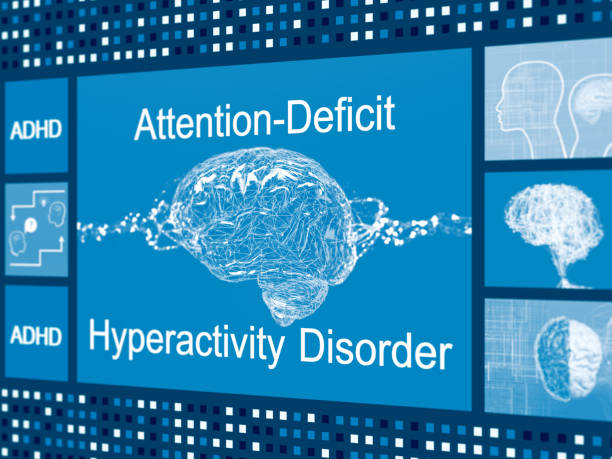Attention deficit hyperactivity disorder is a mental health condition characterised by unusual levels of impulsiveness and hyperactivity. It is one of the most common neurodevelopmental disorders that is first diagnosed during early childhood. People with this condition find it difficult to focus on a specific task or sit still for a long period, and they may act without thinking. This can negatively impact their education, relationships, work and home life.
ADHD can affect people of any age, but it is usually first noticed in the early stages of childhood when the child cannot concentrate on anything and is usually hyperactive. People with ADHD can also experience additional problems like anxiety, emotional instability, insomnia and so on.
Causes
The cause of attention deficit hyperactivity disorder is not fully understood, but some combined factors can be responsible for it.
Brain Function and Structure
The reduction in dopamine, a brain chemical that carries signals from one nerve to another, is a factor that can contribute to ADHD; the chemical also triggers movements and emotional responses. Some other research also found that a difference in the brain structure can result in ADHD; people with ADHD have less grey matter volume. The grey matter includes the parts of the brain that help with muscle control, speech, self-control, memory and decision-making.
Genetics
ADHD can also run in families if the child inherits the genes. So, if your parents or siblings have ADHD, you are more likely to have the condition.
Symptoms of Attention Deficit Hyperactivity Disorder
It is normal for a child to have difficulties focusing on one thing for a long time during early childhood. However, children with attention deficit hyperactivity disorder do not outgrow these behaviours, which can cause problems for them with friends at home or school.
Children with ADHD may have these symptoms:
- Talking too much.
- Daydreaming.
- Unnecessary risks.
- Losing and forgetting things.
- Squirming or fidgeting.
- Have a hard time resisting temptation.
- Make careless mistakes.
- Have trouble getting along with others.
- Have difficulty focusing on a task.
- Finding it difficult to sit still in class.
- Being easily distracted.
- Find it difficult to wait their turn.
- Interrupting people when they are talking.
- Having trouble organising their activities.
Treatment
Attention deficit hyperactivity disorder is treated with therapy and medication. The therapy includes talk therapy to help you better understand and manage the condition and behavioural therapy to help the child learn to control and monitor their behaviour. Medication is also prescribed to change the brain’s chemicals and enable the child to manage impulses and actions.



